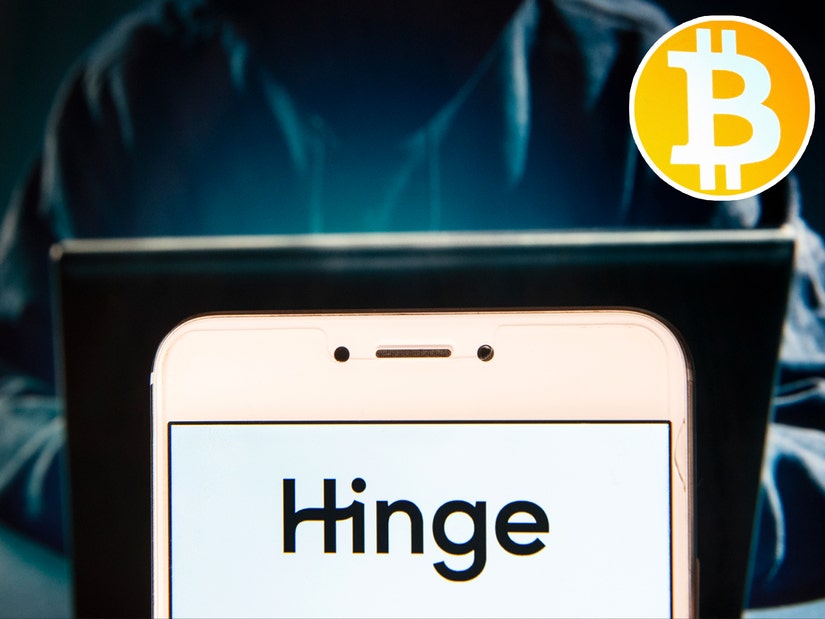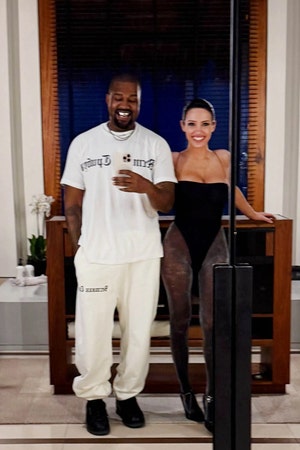 Getty
Getty
The profits looked unbelievable. They were.
A Tennessee woman who thought she'd found both love and wealth ended up with neither.
Niki Hutchinson, a 24-year-old social media producer, became another victim of the crypto romance scam — which the FBI recently warned is sharply on the rise.
Niki told the New York Times she was conned out of her $300K inheritance by a man she fell for on the dating app Hinge.
 Getty/Aaron Epstein/Netflix
Getty/Aaron Epstein/Netflix
Fake Heiress Anna Delvey Slams Netflix Series About Her From Jail, Says She Won't Be Watching
View StoryWhile visiting a friend in California, she matched with a man named Hao, who said he lived nearby and worked in the clothing business; she told him she was adopted from China, he said he too was Chinese and from the same province.
After returning home, she said the two continued to text for more than a month, having moved their chat to WhatsApp — which experts warn can be an early red flag, as messages are encrypted and harder to track. But it was not a flag Niki spotted.
She said they video chatted only once, but Hao only showed part of his face and hung up pretty quickly. "I thought he was shy," she recalled.
Niki told her beau that she had inherited $300K from the sale of her mother's house, who had recently died. He suggested she invest it in cryptocurrency.
"I want to teach you to invest in cryptocurrency when you are free, bring some changes to your life and bring an extra income to your life," he texted her.
She eventually agreed, and sent a small amount to the wallet address he gave her, which he said was connected to an account on a crypto exchange named ICAC. When her money appeared on the legitimate-looking website, she was convinced. When she saw how quickly and easily her investment was growing, she sent more — until she had sank her entire inheritance into it. She even took out loans to invest more.
It wasn't until December, when she tried to withdraw money, did the alarm bells go off. The transaction failed; when she contacted customer service at ICAC, they told her her account would be frozen unless paid hundreds of thousands of dollars in taxes.
She turned to Hao for advice — and he ghosted her.
"I was like, oh, God, what have I done?" she said.
Niki now lives in an RV with her dad, and has been desperately working with local police in Florida to try to track the scammer down... but she isn't holding out much hope of ever seeing her money again.
"You hear all these stories about people becoming millionaires," she said. "It just felt like, oh, well, cryptocurrency's the new trend, and I need to get in."
 TikTok
TikTok
'Scam' Movers Lock Customer in Back of Truck After Refusing to Release Belongings
View StoryThe Times also spoke to another victim, Tho Vu, with an eerily similar story; this time the charmer's name was Ze Zhao and the crypto exchange was OSL, but the plot points were all the same: Met on Hinge, texted for months without meeting (he was waiting on his Covid booster shot), crypto investment advice... and another $300k disappeared without a trace.
"I thought I knew him," Tho — who works in customer service for a security company — told the outlet. "Everything was a lie."
FBI offices all over the country have been warning of the recent rise of the crypto romance scam — exacerbated by the loneliness of Covid and the trendiness of cryptocurrency.
Earlier this month the Bureau's San Francisco field office reported that in its territory alone, $64 million had been lost to romance scams in 2021, compared to just over $35 million in 2020.
"The FBI San Francisco has seen a rising trend in which romance scammers are persuading individuals to send money to invest or trade cryptocurrency," it warned in a bulletin.
"After gaining the confidence and trust of the victim, the scammer then directs the victim to a fraudulent website or application for an investment opportunity. After the victim has invested an initial amount on the platform and sees an alleged profit, the scammers allow the victim to withdraw a small amount of money."
"Eventually, the scammer instructs the victim to invest a more considerable amount. When the victim is ready to withdraw funds again, the scammers create reasons why this cannot happen. The victim is informed additional taxes or fees need to be paid, or the minimum account balance has not been met to allow a withdrawal. Sometimes, a 'customer service group' gets involved, which is also part of the scam."
"Ultimately, victims cannot withdraw any money, and the scammers most often stop communicating with the victim after they cease to send additional funds."
They offer the following tips:
- Never send money, trade, or invest per the advice of someone you have solely met online.
- Do not disclose your current financial status to unknown and untrusted individuals.
- Do not provide your banking information, Social Security Number, copies of your identification or passport, or any other sensitive information to anyone online or to a site you do not know is legitimate.
- If an online investment or trading site is promoting unbelievable profits, it is most likely that — unbelievable.
- Be cautious of individuals who claim to have exclusive investment opportunities and urge you to act fast.
 Bravo
Bravo



















